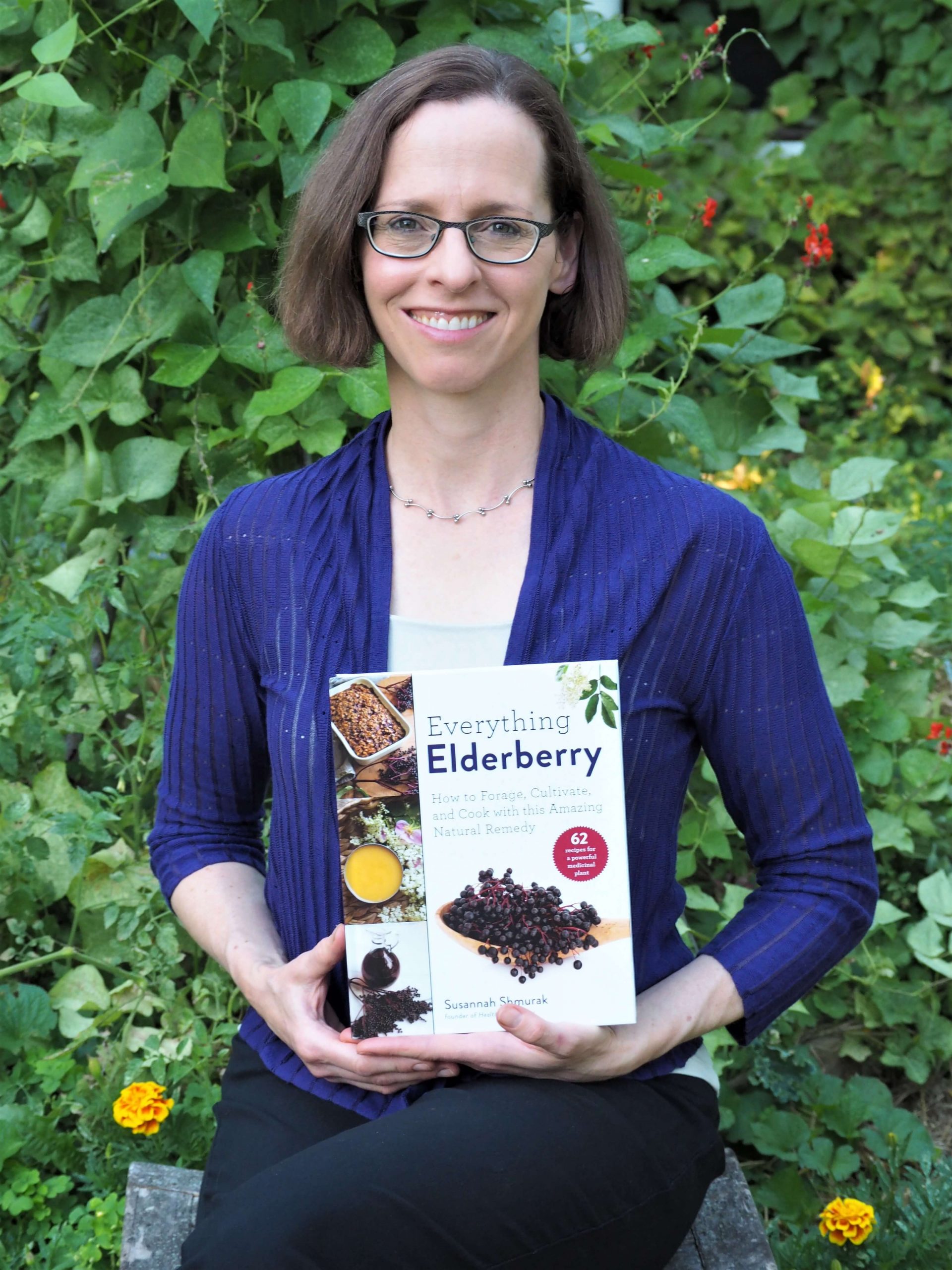Last Updated on December 12, 2024
Not sure how to use essential oils? This beginner’s guide can get you started using the power of plants to improve your mood, relieve stress, and so much more!
Have you been curious about essential oils but haven’t known where to begin? It’s easier than you might think to start using essential oils with some simple methods for reaping their incredible benefits.

This guest post from New Directions Aromatics will tell you what you need to know to start using essential oils.
How to Use Essential Oils
What are essential oils?
Essential oils are highly-concentrated natural oils found in plants derived using a process called distillation to extract them. Essential oils have long been used for their therapeutic and medicinal benefits. They can be used in beauty products, homemade cleaners, and for adding pleasant, therapeutic scents to your home.
Essential oils can help you relax, give you energy, improve your mood, and much more. Depending on what you want to accomplish, choose from the popular essential oils below.
How to Use Essential Oils: Lavender
The most calming essential oil, lavender has a pleasant floral smell many people love. It’s a wonderful scent to help you relax, and it also has antiseptic, antibacterial, antidepressant and anti-inflammatory properties. It’s used to release anxiety, relieve earaches and insect bites, help with respiratory problems and more.
It makes a nice addition to homemade lavender bath salts or DIY lavender sachets.
How to Use Essential Oils: Peppermint
Peppermint is a wonderful energizer and has been shown to reduce feelings of hunger. It’s also used to relieve sore muscles, headaches, and respiratory problems. It’s one of the oils often used with steam when you’re trying to treat a cough naturally.
Peppermint is also an effective repellent for many insects. Here’s how to make homemade bug repellent with bug-repelling essential oils.
Here are lots more uses for peppermint essential oil.
How to Use Essential Oils: Frankincense
Frankincense has a light scent and is a popular addition to homemade beauty products for its soothing and anti-inflammatory properties. It’s also thought to be very helpful for joint pain and arthritis. Frankincense is also helpful for supporting the immune system and reducing stress.
How to Use Essential Oils: Bergamot
Bergamot’s uplifting scent can improve mood and relax you. It’s also helpful for pain relief and is a natural odor-stopper that makes a great addition to homemade deodorants.
How to Use Essential Oils: Rosemary
Rosemary oil has a powerful, pine-y scent. It may help treat mood swings and boost memory. Rosemary has anti-inflammatory properties that can relieve respiratory problems, fight infections, treat coughs, and soothe digestive issues.
How to Use Essential Oils: Tea Tree
Tea tree oil is recommended by many health experts for its antibacterial, anti-inflammatory, anti-viral, stimulant and antiseptic properties. It can be used to prevent and treat dandruff, insect bites, head lice, and warts. It’s an excellent antimicrobial to add to homemade cleaners.
How to Use Essential Oils: Oregano
Popular for both health benefits and culinary uses, oregano essential oil has a warm, spicy herbaceous scent. An anti-fungal, anti-parasitic, anti-bacterial, antioxidant, it aids in the treatment of various fungal infections, cysts, warts, sprains, and others.
Some additional oils and their uses:
Oils to elevate your spirits
- Lemon, Wild Orange, Peppermint, Bergamot, Geranium, Melissa (aka Lemon Balm)
Invigorating oils
- Peppermint, Eucalyptus, Wild orange, Grapefruit, Rosemary, Basil
Relaxing oils
- Lavender, Roman Chamomile, Geranium, Ylang Ylang
How to Use Essential Oils
Pick just a few oils to start with to avoid feeling overwhelmed. Lavender and peppermint are versatile choices, but you can go sniff oils before buying at most natural health stores. Then choose one of the methods below for incorporating these wonderfully aromatic and beneficial oils into your routine.
Diffuse
Diffusing disperses the molecules of the essential oil into the air. It’s one of the most popular ways to use essential oils. There are lots of ways to diffuse essential oils, including:
- On a small cloth. Put 2-3 drops of essential oil on a cloth and keep it nearby. Refresh with a drop every few hours. This method is both cheap and easy.
- Personal diffuser. Attractive necklaces can let you diffuse scents wherever you go.
- Reed diffuser. Reed diffusers will send scent around the room, plus they look lovely!
- Electric diffuser. An electric diffuser will disperse the essential oil into air in the form of fine mist. Not as green as reed diffuser, as it requires electricity, but the electric draw should be relatively small.
- DIY potpourri not only brings pleasing scents into your space, it’s a beautiful way to bring some nature indoors. Fun and easy to make as well.
- Room spray. Fill a spray bottle with water and essential oil. Perfect if you want an instant freshness and scent in the room. Glass bottles (like these) should be used for long term use.
Diffusing energizing essential oils in the morning can help jump start your day. Essential oils can help improve focus and energy at work, and then help release tension and stress before bed.
Inhale
Inhale from an open bottle of essential oil, or put a drop of lavender or chamomile oil on your pillow at night to enhance sleep.
Use Topically
Diluted oils may be applied to the bottoms of feet, chest, around the belly and on pulse points. Here’s a dilution chart from Mommypotamus.
Not all oils should be applied topically. Before applying any essential oil topically, check with the producer. Never use essential oils (even topically-safe ones) close to your eyes! (Here’s a good reference on oil safety from the National Association for Holistic Aromatherapy.)
Add to Baths
You can use essential oils to make baths even more relaxing. Just add essential oil to bath water along with Epsom salts (good source of oh-so-healthful magnesium!) or a carrier oil if preferred. Avoid cinnamon, cassia, oregano, wintergreen, clove, peppermint and lemongrass in baths as they may irritate delicate skin.
Add to Homemade Cleaners
A few drops of lavender, rosemary, bergamot, or tea tree oil in your homemade cleaners will not only make your house smell amazing, it will increase the cleaning and disinfecting power of your cleaners.
Here’s why you should ditch the commercial cleaners and make your own, plus simple recipes for homemade cleaners to get you started.
Peppermint has the added benefit of repelling insects and energizing people, so include some in your counter and floor spray and enjoy the fresh smell that sends bugs running the other way!
Keep in mind when you’re just learning how to use essential oils:
- Always consult with your doctor before using essential oils. Many oils are not recommended for use in pregnancy or with children. (Here’s a handy list of oils that can be used in pregnancy and those safe for kids from the Hippy Homemaker.)
- Always dilute essential oils in a carrier oil before applying to skin. If you experience redness or itching, discontinue use and consult a doctor.
- Citrus oils like lemon, orange and bergamot can increase sensitivity to sun, so avoid exposing skin where you’ve applied it to sun for 12 hours.
- Keep essential oils away from daylight and dampness.
- Oils can stain clothes, towels and furniture, so be careful.
- Avoid using metal or plastic utensils to blend or apply essential oils. Stick to ceramic and glass.
Ready to give some of these amazing essential oils a whirl? You’re going to love how they make you feel!
Have you used essential oils before? What are your favorites and what do you use them for? Please share in the comments!
Pin to save for later!
Established in 1987 in Sydney, Australia, and having since expanded to North America in 1997, New Directions Aromatics Inc. is a leading wholesale supplier of 100% pure, unadulterated, therapeutic-grade Essential Oils and Raw Materials. Beginning with only a handful of distilleries, we presently source directly from ethical producers in all six continents.
Photo credits: Monicore, Pexels
Disclaimer: Content on this site is for educational purposes only and is not meant to provide personalized medical advice. Please consult a licensed professional for personalized recommendations.

Susannah is a proud garden geek and energy nerd who loves healthy food and natural remedies. Her work has appeared in Mother Earth Living, Ensia, Northern Gardener, Sierra, and on numerous websites. Her first book, Everything Elderberry, released in September 2020 and has been a #1 new release in holistic medicine, naturopathy, herb gardening, and other categories. Find out more and grab your copy here.



 Hi, I'm Susannah, a garden geek, energy nerd, and fan of healthy food and natural remedies. Need some simple, practical solutions for living healthier and greener? You've come to the right place! More about me and my green projects
Hi, I'm Susannah, a garden geek, energy nerd, and fan of healthy food and natural remedies. Need some simple, practical solutions for living healthier and greener? You've come to the right place! More about me and my green projects